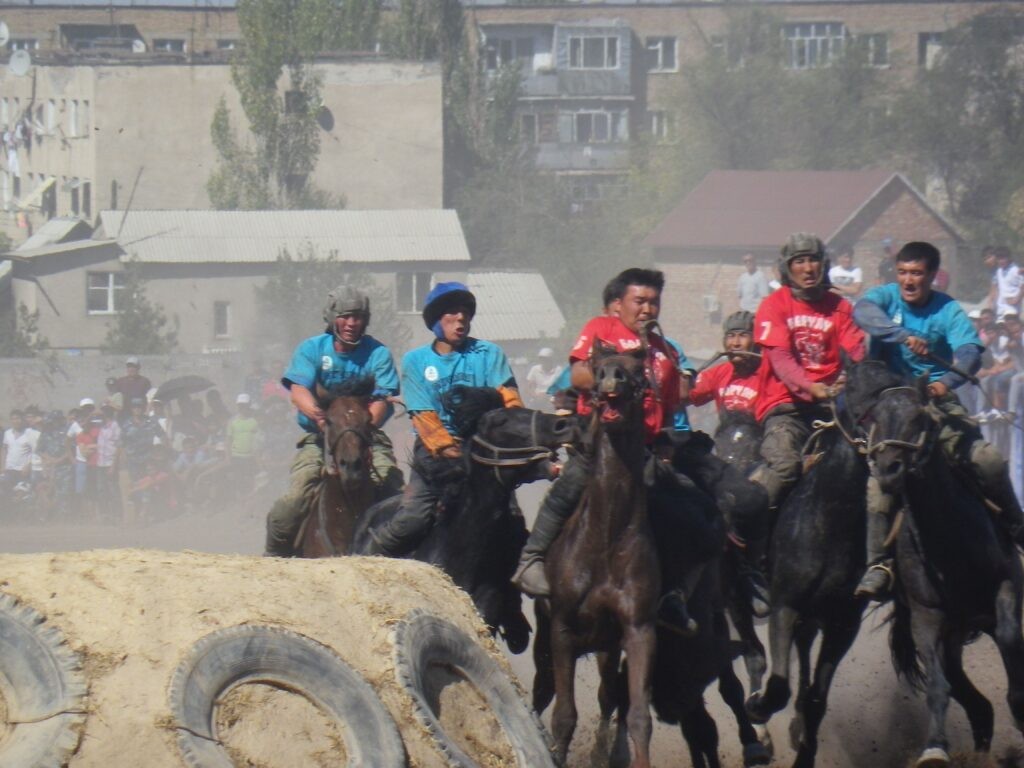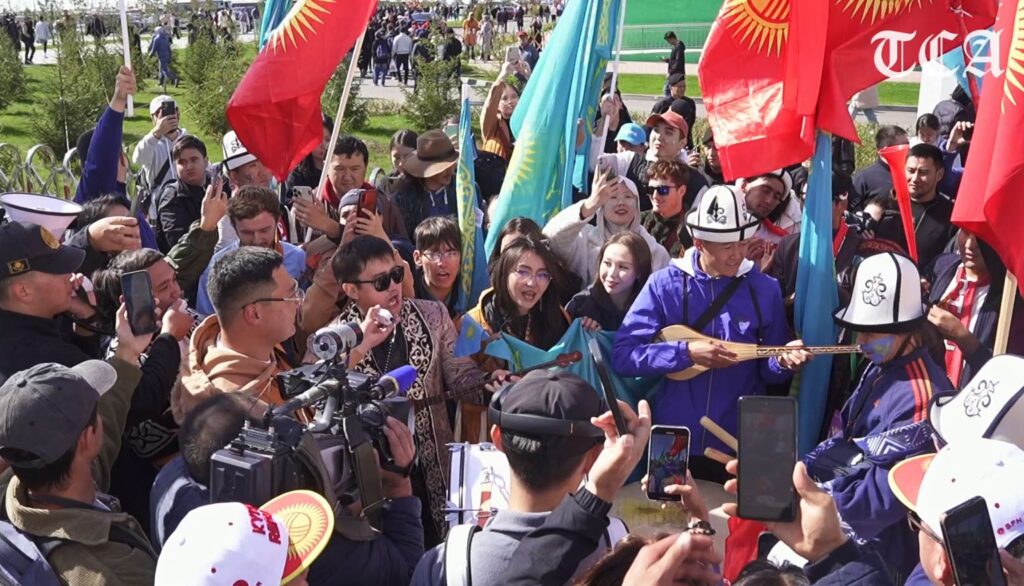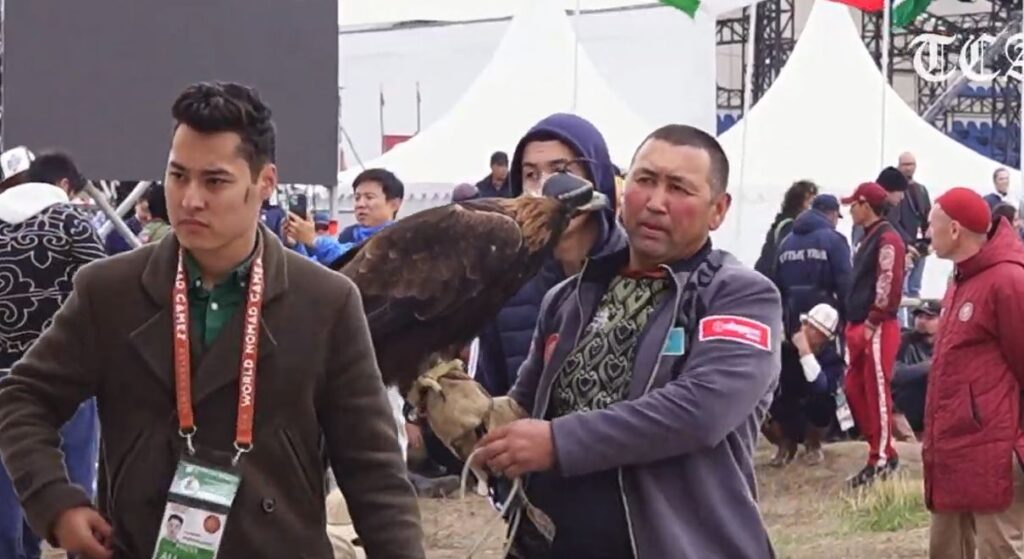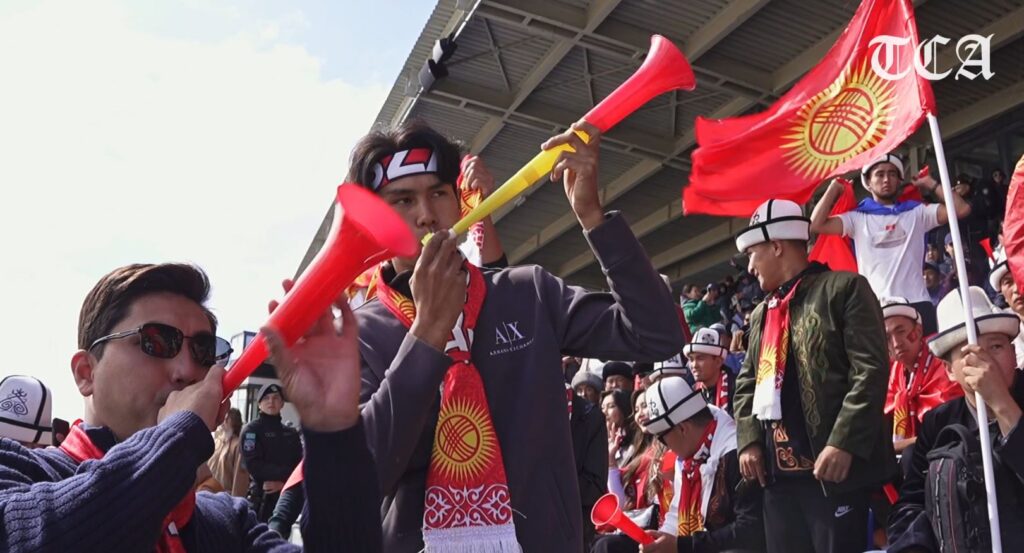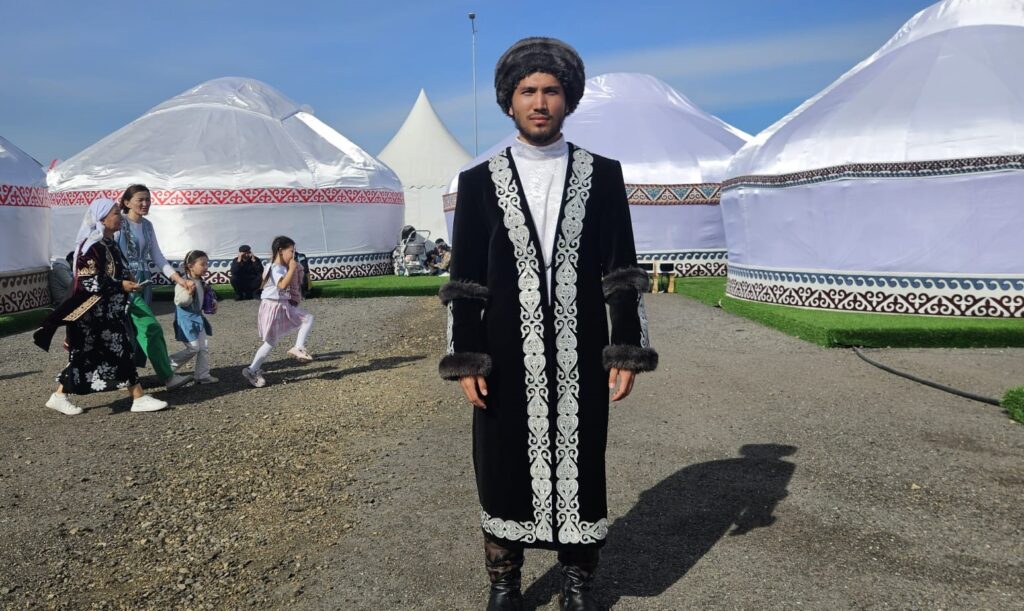Like most dominating worldwide sports, the World Nomad Games are top-heavy with male athletes. Yet while women don’t participate in all the categories, in the 2024 WNG, a noteworthy number of them have become the center of attention. Among the packed crowds of the Hippodrome and Ethnoaul venues, one competitor and two ticket holders had a few things to say on the matter of WNG women.
Timea Janurik, known as Timi, is a folk musician and a PhD student in folk teaching methods, from Budapest, Hungary. She is competing as a player of the citera, the national stringed instrument of Hungary, at the Ethnoaul. The Hungarian representation at the WNG includes three men and three women, but Timi, who specializes in Turkic folk songs, is the only musician among them. While rehearsing in Astana, Timi chanced upon a Kazakh girl singer and asked her, “Do you want to join me in the concert?” Hence, a female alliance and a makeshift band were formed because Timi only knew how to sing one song in the Kazakh language. According to Timi, her new partner “can sing beautifully.” In Timi’s native Hungary, folk musicianship is an art form split evenly among men and women, but citera playing is dominated by women (and violin playing by men).
Timi is also participating in the female Assyk games, a type of traditional Kazakh board game in which players use small animal bones — assyks — to knock out multiple lines of their opponent’s assyks. The game rules differ according to gender. The male version of the game “is more popular,” says Timi, “because it’s more visible and looks so fancy to play.”
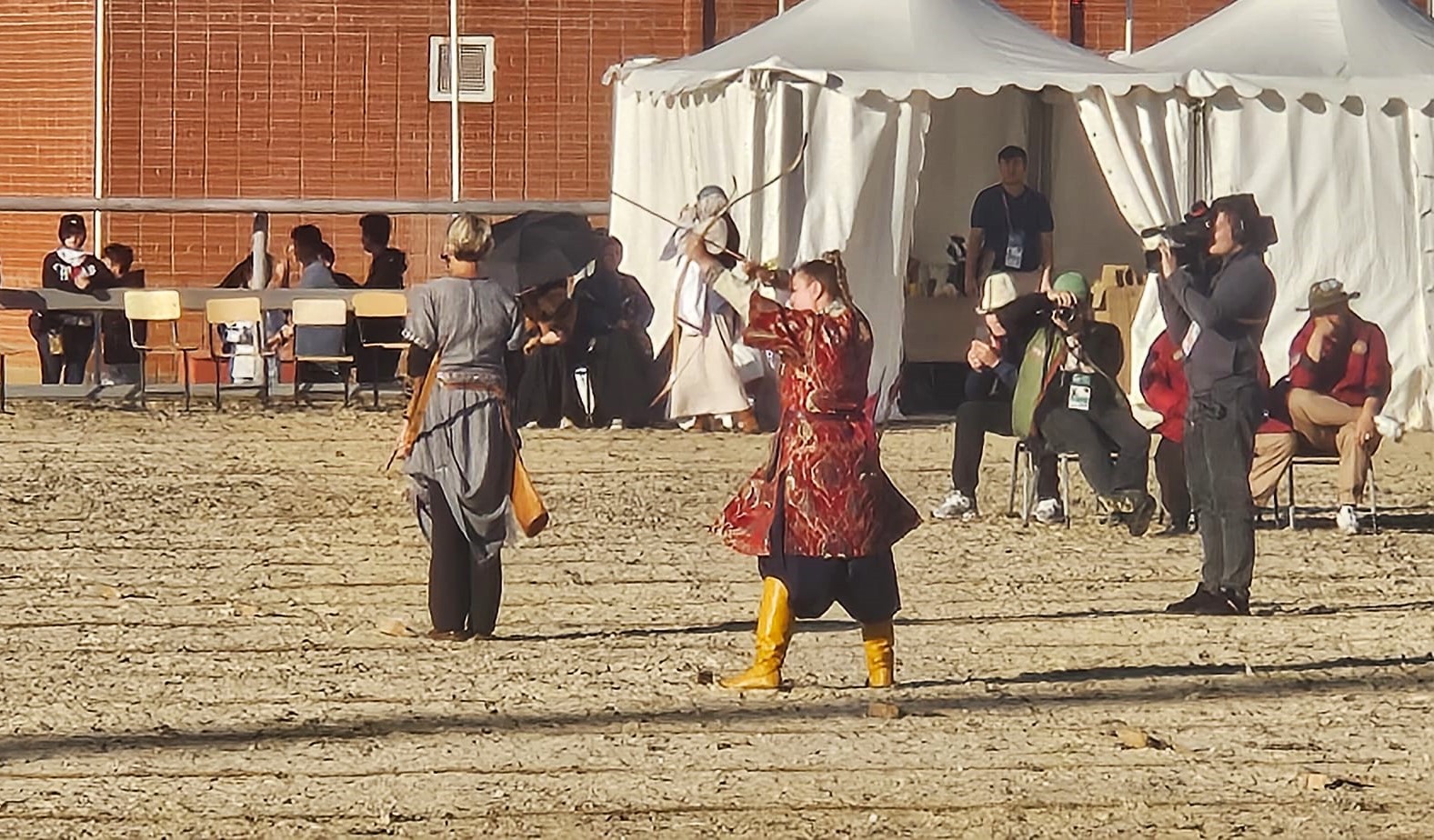
Image: TCA, K. Krombie
British visitors Naomi Ocean and Andy Myer (an archer), from Wales and Devon, respectively, came all the way from the UK to Astana to watch the horseback archery. Even though they are well-traveled in other regions of Central Asia, this is their first visit to Kazakhstan and the WNG. They remarked that they hadn’t noticed the UK team participating in anything they have witnessed thus far, but what they have seen has been “interesting and exciting.” Having just seen the Turkey team being “trashed in the kok boru,” they were happy to see Turkey’s subsequent victory in the Traditional Turkish Archery, in particular the female team member who performed victory laps before an exhilarated, mostly Kazakh crowd. “We were glad,” said Naomi, “and we loved seeing the female archers.” Naomi was equally, if not more impressed by the “mixed teams” in the horseback archery category. Having watched and enjoyed the 2016 Kazakh language documentary film, The Eagle Huntress, Naomi and Andy look forward to the Kusbegilik games. “We’re expecting to see women handling eagles, which should be good.”
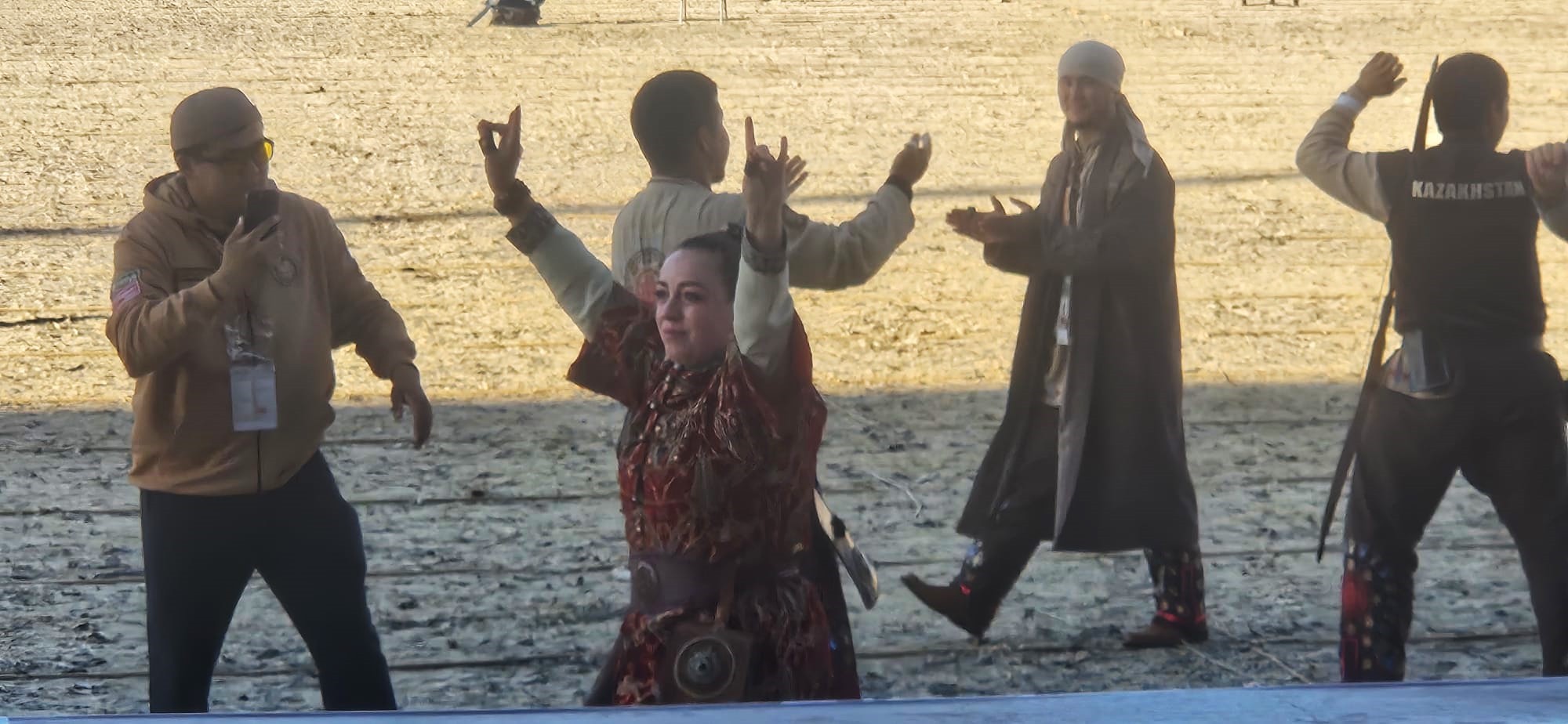
Image: TCA, K. Krombie
A Turkish team victor, competing in Traditional Turkish Archery (mixed gender team), and an Uzbek athlete in horseback archery (with no specific male and female categories) drew huge support — arguably more than their fellow male competitors. Out of the 21 competitive sports, a handful, including some of the more rambunctious horseback and wrestling games, don’t include women. The very notion of incorporating women’s teams into the more rough-and-tumble divisions could draw further attention to these sports as well as a new vantage point for the ticket-purchasing general public.
“There was a lot of cheering for the women going on from the stands,” said Naomi, “a lot of support for the female riders.”




